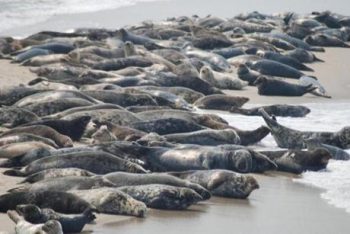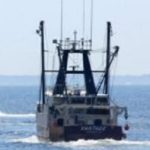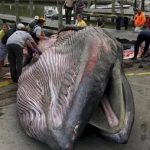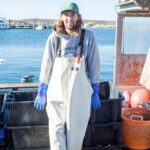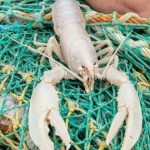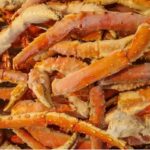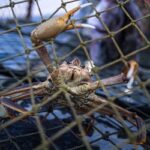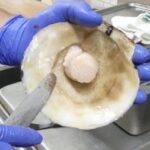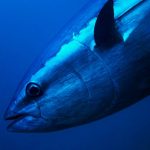Tag Archives: great-white-sharks

Cape Cod: Expert says sharks, seals here to stay
Last year, George Burgess predicted that a fatal shark attack would occur on Cape Cod within five years. “It’s the combination of a large predator, and the things they eat, both gaining in population size and both coming back to lay claim to areas that historically were theirs 150 years ago,” Burgess, now retired after 40 years as a shark researcher and curator, was on the Cape last week to gather information for the shark attack file on the region’s two shark attacks this summer, including one that resulted in the death of 26-year-old boogie boarder Arthur Medici. Burgess stressed his concern over the loss of life and his sympathy for the victim and his family, but said the Cape has now turned a corner,,, >click to read<11:09
Video: Crew catches 16-foot “monster” great white shark off Hilton Head Island
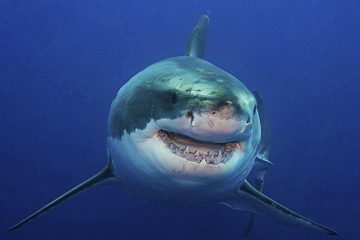 Chip Michalove has been obsessed with sharks since he was 5 years old. So, it’s no surprise he grew up to become a charter fisherman. For the past 17 years, Michalove, the owner and captain of Outcast Sport Fishing on Hilton Head Island, South Carolina, has helped tag hundreds of sharks — mainly tiger sharks. But he hoped to one day fulfill his lifelong dream: to catch a great white in the Atlantic Ocean. On New Year’s Eve, Michalove’s dream came true in a big way. The fisherman hooked a 16-foot female great white shark. Video, read the story here 16:02
Chip Michalove has been obsessed with sharks since he was 5 years old. So, it’s no surprise he grew up to become a charter fisherman. For the past 17 years, Michalove, the owner and captain of Outcast Sport Fishing on Hilton Head Island, South Carolina, has helped tag hundreds of sharks — mainly tiger sharks. But he hoped to one day fulfill his lifelong dream: to catch a great white in the Atlantic Ocean. On New Year’s Eve, Michalove’s dream came true in a big way. The fisherman hooked a 16-foot female great white shark. Video, read the story here 16:02
Not Your Average Fish: Tuna Shares ‘Super Predator’ Genes With Great White Sharks
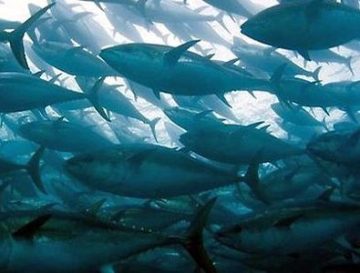 Despite independent evolution for 400 million years, sharks and tunas still share common genetic traits. They include higher metabolism, body temperature and fast swimming skills. In the lamnid group of sharks, great white sharks are a major presence. Some common genetics make them super predators with brisk swimming power and the ability to stay warm. This was revealed in a new research by Imperial College London which asserted the commonality of genes in the two groups as key to their predatory edge. Regarding the identical genes in both the groups, the team said they are mainly linked with metabolism and the ability to produce energy. The study, published in Genome Biology and Evolution Journal, had Professor Vincent Savolainen from the Department of Life Sciences at Imperial as the Co-author. “Lamnid sharks and tuna both have stiff bodies and tails that allow them to swim in bursts. They can also keep their temperature up in colder waters. Both of these things make them more effective predators, allowing them to snatch prey in usually inhospitable waters,” Savolainen said. Read the rest here 16:41
Despite independent evolution for 400 million years, sharks and tunas still share common genetic traits. They include higher metabolism, body temperature and fast swimming skills. In the lamnid group of sharks, great white sharks are a major presence. Some common genetics make them super predators with brisk swimming power and the ability to stay warm. This was revealed in a new research by Imperial College London which asserted the commonality of genes in the two groups as key to their predatory edge. Regarding the identical genes in both the groups, the team said they are mainly linked with metabolism and the ability to produce energy. The study, published in Genome Biology and Evolution Journal, had Professor Vincent Savolainen from the Department of Life Sciences at Imperial as the Co-author. “Lamnid sharks and tuna both have stiff bodies and tails that allow them to swim in bursts. They can also keep their temperature up in colder waters. Both of these things make them more effective predators, allowing them to snatch prey in usually inhospitable waters,” Savolainen said. Read the rest here 16:41
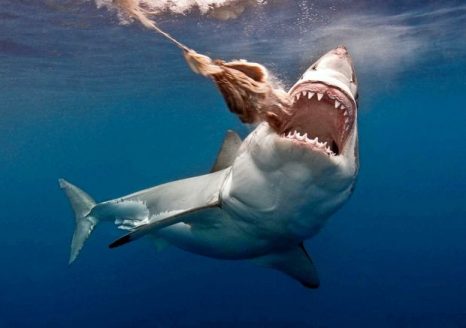
Federal Government has signalled it would consider a shark cull on the NSW north coast
As shark attack victim Cooper Allen recovers in Lismore Hospital, the Federal Government has signaled it would consider a shark cull on the NSW north coast. Federal Environment Minister Josh Frydenberg’s statement comes as the State Government announces a further three- month trial of shark-spotting drones and additional drum lines for the area. He said he was open to proposals for a cull of great white sharks. Culling great whites would need federal approval because they are a vulnerable species. Read the rest here 09:26
Ocearch says it’s found first-ever great white sharks birthing site off Montauk
 Ocearch said its team of fishermen and scientists has found the first known birthing site for great white sharks on the North Atlantic Coast. After 26 expeditions, Ocearch said the birthing site in the famous waters off Montauk, Long Island is the most significant discovery they’ve ever made, reports CBS News correspondent Jeff Glor. “It’s kind of like step two in the science,” said Chris Fischer, founder of Ocearch and the expedition’s leader. “When we started this work back in 2012, 2013… the real question was where are these sharks in the North Atlantic giving birth? Because that’s where they’re most vulnerable.” For researchers, finding the North Atlantic birthing site can lead to better protection policies and far more scientific knowledge. Read the story here 13:26
Ocearch said its team of fishermen and scientists has found the first known birthing site for great white sharks on the North Atlantic Coast. After 26 expeditions, Ocearch said the birthing site in the famous waters off Montauk, Long Island is the most significant discovery they’ve ever made, reports CBS News correspondent Jeff Glor. “It’s kind of like step two in the science,” said Chris Fischer, founder of Ocearch and the expedition’s leader. “When we started this work back in 2012, 2013… the real question was where are these sharks in the North Atlantic giving birth? Because that’s where they’re most vulnerable.” For researchers, finding the North Atlantic birthing site can lead to better protection policies and far more scientific knowledge. Read the story here 13:26
Long Island a Possible ‘Breeding Ground’ For Great White Sharks
 Ever since the blood-curdling screams of an ill-fated skinny dipper, who met her famous demise in the opening scene of “Jaws,” generations of beach-goers have approached the water with bone-chilling trepidation. Now, a leading shark research team has said it suspects Long Island might be a breeding ground for great whites and has launched a tagging expedition to be able to determine potential birthing sites. According to OCEARCH Chief Operating Officer Fernanda Ubatuba — OCEARCH is a nonprofit organization dedicated to shark research — if you look at a global shark tracker, five mature female great white sharks have been tagged in the past three to four years, and it seems that “there is certain activity in that region.” Great white sharks, she said, travel from Florida to Canada, “and you can see their activity sometimes overlaps around Long Island.” Read the rest here 17:35
Ever since the blood-curdling screams of an ill-fated skinny dipper, who met her famous demise in the opening scene of “Jaws,” generations of beach-goers have approached the water with bone-chilling trepidation. Now, a leading shark research team has said it suspects Long Island might be a breeding ground for great whites and has launched a tagging expedition to be able to determine potential birthing sites. According to OCEARCH Chief Operating Officer Fernanda Ubatuba — OCEARCH is a nonprofit organization dedicated to shark research — if you look at a global shark tracker, five mature female great white sharks have been tagged in the past three to four years, and it seems that “there is certain activity in that region.” Great white sharks, she said, travel from Florida to Canada, “and you can see their activity sometimes overlaps around Long Island.” Read the rest here 17:35
Western Australian fishing company issues plea to be able to catch great white sharks again
 A long-time WA fishing company says the latest fatal shark attack in coastal waters makes a case for commercial fishers to be able to catch great whites again. Shark fishing off the metropolitan coast was banned in 2007 but on Saturday Southwestern Fresh Fish took to Facebook writing a long post arguing in favour of shark fishing off metro beaches. “Over more than 35 years here at Southwestern Fresh Fish we have encountered hundreds of great white sharks. In our opinion they are definitely increasing with the main time of year to see them now increasing from just a few months per year to around eight months per year,” said the Bunbury firm. Read the rest here 16:54
A long-time WA fishing company says the latest fatal shark attack in coastal waters makes a case for commercial fishers to be able to catch great whites again. Shark fishing off the metropolitan coast was banned in 2007 but on Saturday Southwestern Fresh Fish took to Facebook writing a long post arguing in favour of shark fishing off metro beaches. “Over more than 35 years here at Southwestern Fresh Fish we have encountered hundreds of great white sharks. In our opinion they are definitely increasing with the main time of year to see them now increasing from just a few months per year to around eight months per year,” said the Bunbury firm. Read the rest here 16:54
Bill Chaprales on the hunt for the elusive great white sharks
 Captain Bill Chaprales and his son, Nick, run a commercial fishing business, maintaining 800 lobster traps and hauling in bluefin tuna. As the , they have also become a key part of the Cape’s burgeoning research into the rapid increase of shark sightings in recent years. Read more here 09:00
Captain Bill Chaprales and his son, Nick, run a commercial fishing business, maintaining 800 lobster traps and hauling in bluefin tuna. As the , they have also become a key part of the Cape’s burgeoning research into the rapid increase of shark sightings in recent years. Read more here 09:00
Study: Population of great whites rebounding
 CHATHAM — Sightings of great white sharks in Cape waters is one indicator that the species is rebounding from the lows of 20 years ago, according to a National Marine Fisheries Service study released this week. Read more here 07:51
CHATHAM — Sightings of great white sharks in Cape waters is one indicator that the species is rebounding from the lows of 20 years ago, according to a National Marine Fisheries Service study released this week. Read more here 07:51
OCEARCH Research team sets out to tag great white sharks off Chatham shore
 “We’re going to learn about how this animal lives from day to day,” said Greg Skomal, a state scientist and leader of Massachusetts’ shark research project, who set sail with the OCEARCH on Tuesday. The vessel is named after the nonprofit ocean-based research organization that spearheaded the trip and got the funding. continued@capecodtoday
“We’re going to learn about how this animal lives from day to day,” said Greg Skomal, a state scientist and leader of Massachusetts’ shark research project, who set sail with the OCEARCH on Tuesday. The vessel is named after the nonprofit ocean-based research organization that spearheaded the trip and got the funding. continued@capecodtoday
Enviro’s Slam NMFS – declined to protect great white sharks off the coast of California under the Endangered Species Act.
Last August, Oceana, the Center for Biological Diversity, Shark Stewards, and WildEarth Guardians petitioned the federal government for federal endangered species protection for the apex predator’s genetically distinct Northeastern Pacific population, found off California and Guadalupe Island, Mexico. continued@lakecountynews
population, found off California and Guadalupe Island, Mexico. continued@lakecountynews
Prey, Predator Doesn’t Equal Cause, Effect
![]() On the surface it seems like a simple and straightforward equation: more seals equals more great white sharks. The connection, however, is likely far more complicated. continued@vineyardgazette
On the surface it seems like a simple and straightforward equation: more seals equals more great white sharks. The connection, however, is likely far more complicated. continued@vineyardgazette
Great white sharks off California given greater protection
LOS ANGELES (Reuters) – Great white sharks off the coast of California gained protection on Friday as regulations took effect designating them candidates for future listing under the state’s Endangered Species Act. Read more






